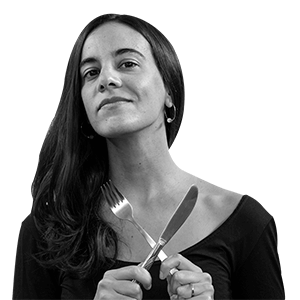Heston Blumenthal: "If we're not careful, Ozempic will ruin the restaurant industry."
Chef


San SebastianHeston Blumenthal (High Wycombe, 1966) is one of the greatest chefs in the United Kingdom and around the world. He's as famous there as Jamie Oliver and Gordon Ramsay, thanks also to his television appearances and books. He's been one of the most influential chefs since his restaurant, The Fat Duck. He developed multisensory cuisine, which earned him the title of number 1 restaurant in the world in 2005. Queen Elizabeth II awarded him the Order of the British Empire, and yesterday he was recognized at the San Sebastián Gastronomika conference for his contributions to cooking. Recently, he has used his fame to speak openly about mental health, having been diagnosed with bipolar disorder, in addition to the attention deficit hyperactivity disorder he already knew he had.
Two years ago, you were diagnosed with bipolar disorder. Do you think this illness has influenced your way of cooking?
— I didn't know I was bipolar until I was 57. I had no idea. I'm still myself, but I'm on medication. And apparently, it takes three to five years to adjust. I have tremors, and sometimes my mouth gets pasty. But I still want to imagine things. I used to have a bit of a crazy feeling, which wasn't really crazy.
Do you think the fact that you are a public figure who speaks out helps people in the same situation?
— When I was diagnosed, I wanted to tell people. And I've had a great response. And not just from people with bipolar disorder, but from people who live with people with bipolar disorder. This is a wonderful thing. Mental health is probably the leading cause of death in the world right now.
You've explained that illness affects the way you see the world, and also allows you to be this more imaginative person.
— When you're hypermanic, it's dangerous. But when you're manic, your ideas just flow and don't stop. A kind of state of grace. It's fantastic. And in those states, I think about a lot of things.
I've met several chefs with ADHD. Do you think there might be a connection?
— I was diagnosed in 2017. Cooking is very good for ADHD because it gives you a framework. You have a list of things to do. One after the other. And it allows me to focus. The problem is when you're left alone, you start doing something else, and then you move on to something else.
Is there a dish you've created that is very meaningful to you?
— Two dishes. Crab risotto with crab ice cream. Because I discovered that if I called it "crab ice cream or crab risotto," people thought it was saltier. And if I called it "frozen crab bisque," people thought it was less salty. And then the dish called The sound of the seaIt consists of a wooden box with sand underneath and glass on top. There's foam, which is like the sea. And then seaweed. We served the dish with an iPod inside a shell, and people put on headphones and listened to the sea. This was in 2008 or 2007. And some people started to cry.
What is quantum cooking?
— Life has many perspectives. You can have a recipe and follow it. But you have an emotional connection to that recipe. So this is the quantum element. You have a written recipe, and then your interpretation of that recipe and how you feel when you cook it. I didn't like being defined with that term before. molecular gastronomyThen I thought it made sense. Because I look at everything more closely. And the truth is, intentionally or not, with sound, smell, sight, touch, and all these things, I've created something they've called molecular gastronomy, which is more than cooking itself, because it includes emotion.
You talk a lot about the power of imagination. What do you think about how this might affect artificial intelligence?
— If we're not careful, robots will take the place of humans. I'd like to use robots to run a restaurant, so humans can do what humans do best. A robot can pour water into a glass. To preserve human beings, I think imagination is one of the most important things. When people say they're not imaginative, it's not true. Everyone has an imagination. And what's wrong with them? They're just interested in other things.
What creative proposal are you working on now?
— Lately, restaurant management and my bipolar disorder have taken up a lot of my time, so I've spent less time being creative. But the creativity is still there. We're creating a menu that's served upside down, and we're also adapting to new medications, like Ozempic or Mounjaro. If we're not careful, they'll ruin the restaurant industry. So we're creating a miniature version of everything. And then people can choose.
What is the most difficult and most rewarding thing about owning a restaurant?
— The difficult thing is human beings. And the most rewarding thing is human beings.
They organized this award for you at San Sebastián Gastronomika. What do you think success means?
— Be happy. If you're truly happy with what you do, then you're successful. I am successful when an idea comes to me out of nowhere. It's like a light bulb going off, and this is wonderful. Nature also makes me happy. Living in a city takes away your ability to observe. For example, if you were sitting in your own garden and looked at the same tree every day, you'd notice any small changes, which are actually big changes.
